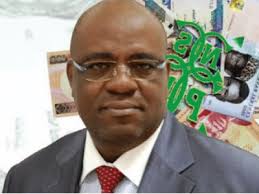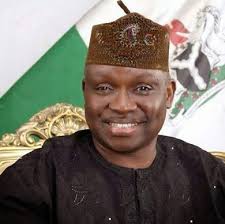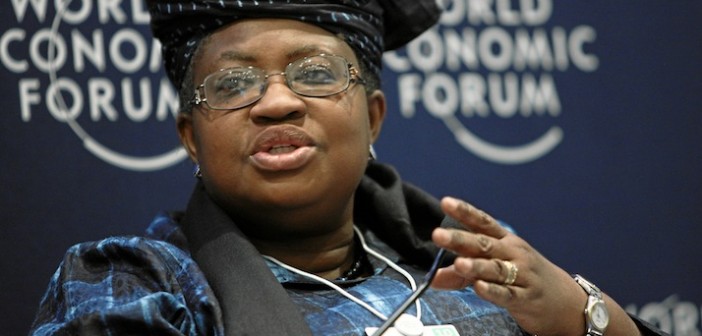The former Managing Director of the Nigerian Security Minting and Printing Plc (NSMP), Emmanuel Ehidiamhem Okoyomon, has applied to the Court of Appeal, Abuja Division, to reverse Monday’s ruling of the Federal High Court, Abuja, which acceded to the request of the federal government to extradite him to the United Kingdom to face trial for alleged corruption and bribery charges.
In order to tie the hands of the federal government from enforcing the judgment pending the hearing and determination of his appeal, Okoyomon has filed an application at the Court of Appeal to stay execution on the judgment.
In a Notice of Appeal filed by his lawyer, Dr. Alex Izinyon (SAN), he formulated four grounds why the decision of the Federal High Court should be set aside.
Izinyon contended that “the learned trial judge erred in law when he ordered the extradition of the appellant to Great Britain to stand criminal trial”.
He cited three particulars of error to support his argument as follows: There is no subsisting Act of the National Assembly or treaty between Nigeria and Great Britain upon which the decision of the court was premised;
•There was also no order made by the President of Federal Republic of Nigeria applying the provisions of the Extradition Act. Cap E25, LFN 2004 to Great Britain as envisaged by Section 1(6) of the Extradition Act, Cap E25, LFN 2004;
•The order for the extradition of the appellant is not supported by any legislation.
In the second grounds, Izinyon submitted that “the learned trial court erred in law when he held that the Extradition Treaty between Great Britain and the United States of America signed in London on 22nd November, 1931 was applicable to Nigeria and ordered the extradition of the appellant to Great Britain to stand trial, relying on the said treaty between Great Britain and the United States of America”.
In support of this argument, he cited seven instances, where he stated that “the said treaty between the Great Britain and United States of America is not applicable to Nigeria”.
In addition, Okoyomon filed a motion for stay of execution of the extradition order of Justice Evoh Chukwu.
In the said motion, he prayed the court for an order staying the execution of the judgment delivered on May 4, 2015.
The United Kingdom had forwarded an extradition request to the federal government for Okoyomon, requiring him to come and answer to charges relating to his alleged role in the bribery scandal involving officials of the Central Bank of Nigeria (CBN), the Mint and Securency International Pty of Australia between 2006 and 2008.
But Okoyomon objected to the application to extradite him. Instead, he urged the court to reject the Attorney General’s application, contending that there was no existing treaty between Nigeria and the UK to warrant his extradition.
But in a decision delivered on Monday by Justice Chukwu after several failed attempts, the court said all laid down procedures for the extradition application to succeed had been met.
Justice Chukwu also held that there was an existing extradition treaty between UK and Nigeria.
Consequently, he ordered the AGF to extradite Okoyomon to the UK within 30 days. This Day
In order to tie the hands of the federal government from enforcing the judgment pending the hearing and determination of his appeal, Okoyomon has filed an application at the Court of Appeal to stay execution on the judgment.
In a Notice of Appeal filed by his lawyer, Dr. Alex Izinyon (SAN), he formulated four grounds why the decision of the Federal High Court should be set aside.
Izinyon contended that “the learned trial judge erred in law when he ordered the extradition of the appellant to Great Britain to stand criminal trial”.
He cited three particulars of error to support his argument as follows: There is no subsisting Act of the National Assembly or treaty between Nigeria and Great Britain upon which the decision of the court was premised;
•There was also no order made by the President of Federal Republic of Nigeria applying the provisions of the Extradition Act. Cap E25, LFN 2004 to Great Britain as envisaged by Section 1(6) of the Extradition Act, Cap E25, LFN 2004;
•The order for the extradition of the appellant is not supported by any legislation.
In the second grounds, Izinyon submitted that “the learned trial court erred in law when he held that the Extradition Treaty between Great Britain and the United States of America signed in London on 22nd November, 1931 was applicable to Nigeria and ordered the extradition of the appellant to Great Britain to stand trial, relying on the said treaty between Great Britain and the United States of America”.
In support of this argument, he cited seven instances, where he stated that “the said treaty between the Great Britain and United States of America is not applicable to Nigeria”.
In addition, Okoyomon filed a motion for stay of execution of the extradition order of Justice Evoh Chukwu.
In the said motion, he prayed the court for an order staying the execution of the judgment delivered on May 4, 2015.
The United Kingdom had forwarded an extradition request to the federal government for Okoyomon, requiring him to come and answer to charges relating to his alleged role in the bribery scandal involving officials of the Central Bank of Nigeria (CBN), the Mint and Securency International Pty of Australia between 2006 and 2008.
But Okoyomon objected to the application to extradite him. Instead, he urged the court to reject the Attorney General’s application, contending that there was no existing treaty between Nigeria and the UK to warrant his extradition.
But in a decision delivered on Monday by Justice Chukwu after several failed attempts, the court said all laid down procedures for the extradition application to succeed had been met.
Justice Chukwu also held that there was an existing extradition treaty between UK and Nigeria.
Consequently, he ordered the AGF to extradite Okoyomon to the UK within 30 days. This Day














